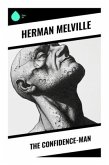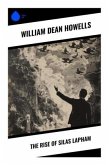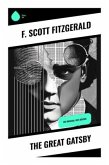Herman Melville's "Billy Budd" is a compelling novella that intricately explores themes of innocence, morality, and the nature of evil against the backdrop of a British warship in the late 18th century. Written in a fluid, evocative prose style characteristic of Melville's later works, it masterfully juxtaposes the virtuous character of Billy Budd-a well-liked sailor-with the scheming malevolence of the master-at-arms, Claggart. This rich narrative not only serves as a critique of societal norms and justice but also reflects Melville's deep concerns regarding moral dilemmas faced by individuals caught in the machinery of authority and fate. Herman Melville, an American novelist and poet, is best known for his profound philosophical insights into human nature and existence, as exemplified in his seminal work, "Moby-Dick." Written during a period of personal and professional turmoil, "Billy Budd" encapsulates Melville's reflections on the futility of human struggle against an indifferent universe. The novella was left unfinished at the time of his death and published posthumously, revealing his continued exploration of existential themes and the complexity of human character. "Billy Budd" is an essential read for those intrigued by moral philosophy and literary excellence. Its nuanced portrayal of character and conflict invites readers to reflect on the intricacies of justice and compassion. Melville's poignant storytelling not only captivates but also challenges one's understanding of good and evil, making it a timeless piece that resonates with contemporary audiences.
Bitte wählen Sie Ihr Anliegen aus.
Rechnungen
Retourenschein anfordern
Bestellstatus
Storno








